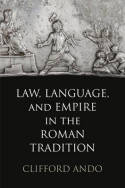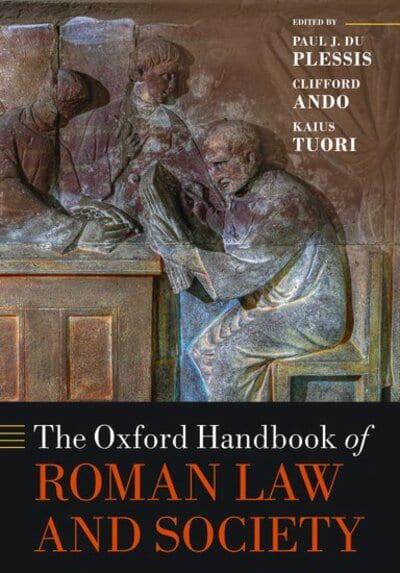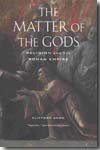Law, language, and empire in the roman tradition
- ISBN: 9780812243543
- Editorial: University of Pennsylvania Press
- Fecha de la edición: 2010
- Lugar de la edición: Pennsylvania. Estados Unidos de Norteamérica
- Encuadernación: Cartoné
- Medidas: 24 cm
- Nº Pág.: 192
- Idiomas: Inglés

The Romans depicted the civil law as a body of rules crafted through communal deliberation for the purpose of self-government. Yet, as Clifford Ando demonstrates in Law, Language, and Empire in the Roman Tradition, the civil law was also an instrument of empire: many of its most characteristic features developed in response to the challenges posed when the legal system of Rome was deployed to embrace, incorporate, and govern people and cultures far afield. Ando studies the processes through which lawyers at Rome grappled with the legal pluralism resulting from imperial conquests. He focuses primarily on the tools-most prominently analogy and fiction-used to extend the system and enable it to regulate the lives of persons far from the minds of the original legislators, and he traces the central place that philosophy of language came to occupy in Roman legal thought. In the second part of the book Ando examines the relationship between civil, public, and international law. Despite the prominence accorded public and international law in legal theory, it was civil law that provided conceptual resources to those other fields in the Roman tradition. Ultimately it was the civil law's implication in systems of domination outside its own narrow sphere that opened the door to its own subversion. When political turmoil at Rome upended the institutions of political and legislative authority and effectively ended Roman democracy, the concepts and language that the civil law supplied to the project of Republican empire saw their meanings transformed. As a result, forms of domination once exercised by Romans over others were inscribed in the workings of law at Rome, henceforth to be exercised by the Romans over themselves.









